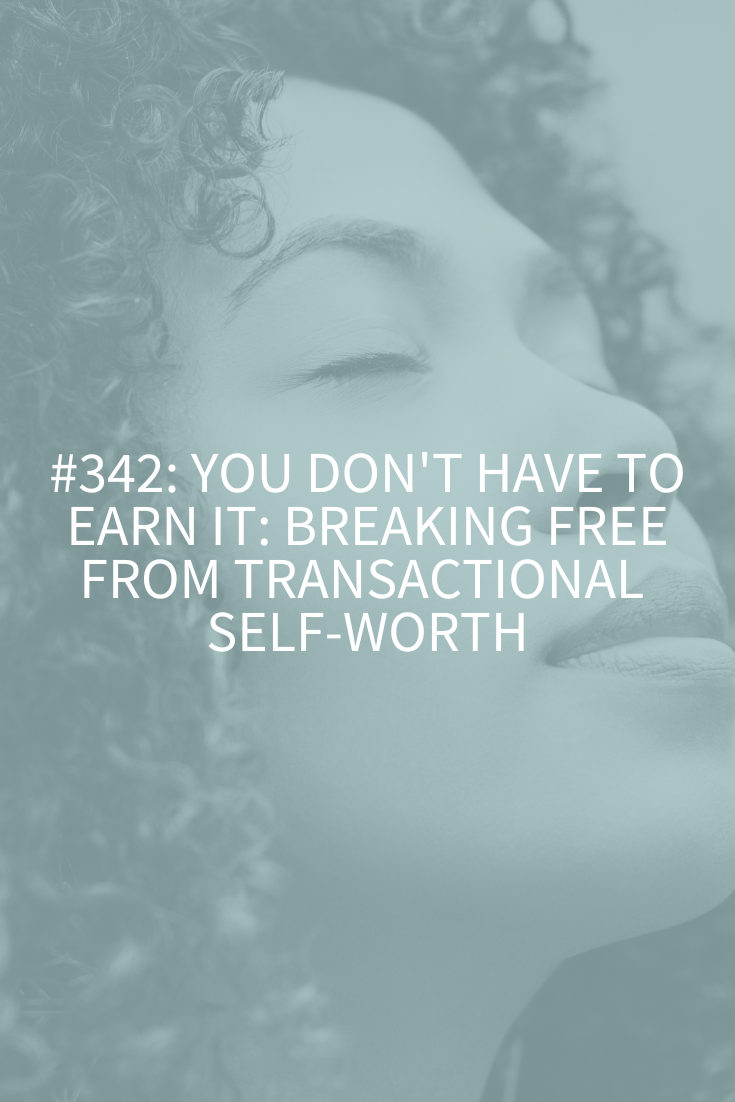
I get asked a lot how to deal with judgmental and critical people. This is an issue for just about everyone, so today I’m coming at you with the 2 reasons people act this way and then my top 4 strategies for finding peace and calm, no matter what they say.
There are 2 main reasons people judge and criticize:
1. They’re fish who don’t know they’re wet.
Many people judge but have no idea they’re doing it. It’s simply a habit they’ve adopted. Often, it’s something they’ve taken on from their family of origin. Your dad criticized your mom, or your sister would tell you that you were doing it wrong if it wasn’t her way, so you started doing it too because it seemed like the “right” way to act.
In other words, it’s not a conscious choice, generally. It’s just a way of being – part of the family culture. You might think it’s perfectly normal and acceptable to constantly give your opinion even though you weren’t asked or to point out where someone could do something better (better, of course, means your way).
By the way, I think mansplaining fits here too. Men, I love you, but you just don’t realize that you’re mansplaining most the time. You think you’re giving us “helpful suggestions” or that you just should comment on things. You know what I say? Who asked you?!
2. They’re insecure.
When people judge or criticize us, they’re letting us know that they’re sad, worried, in pain, or in some other type of fear. People want to feel better by making someone else feel worse. They don’t think this consciously, but that’s what it is. They’ve got low self-esteem or a lack of confidence themselves.
People with “empty buckets” tend to try to make themselves feel better by making others feel worse (by dipping into your bucket), which only succeeds in making both people feel bad. The important thing to focus on is whether the person who is constantly criticizing you is coming from a low place with an “empty bucket” (lack of confidence, envy, low self-esteem), and then view their behaviors through that lens when deciding how important their viewpoint should be to you.
Competition falls under this category of insecurity and being fear-based also. This can include competing for resources, time, attention and money. You might put down your sister to get more of your mom’s love or drag down your partner because you feel like they’re better than you (therefore, they might leave you if they figure this out).
4 Tips for Dealing with Judgment and Criticism
1. Be Mindful About What You Share
In my experience, people share way too much with the wrong people and then are upset when it gets turned around on them. Just because someone is your dad, girlfriend or beloved boss doesn’t mean they should be privy to all you’re thinking and feeling.
I love my man dearly, but there are certain things he just doesn’t “get” about me so there are certain things I don’t share with him because he ends up either not commenting and “holding his tongue” or saying something that dismisses or undermines what I believe in. For example, I’ve been reading Tarot cards since I was in my early teens. I believe in ALL that. I also have deep spiritual beliefs he doesn’t share. So, when I do Tarot readings that are incredible or when I get a message from one of my spirit guides, I don’t share these things with him. These aren’t secrets, they’re just things that don’t resonate with him and I have lots of other people who can’t wait to hear about these kinds of things so I have plenty of places to share that part of my life. I don’t expect him to be all things. This way, it saves me from feeling resentful and hurt if his reactions aren’t going to be what I want.
The same was true when my mother was alive. There were tons of things I didn’t share with her and it enabled us to have a lot of peace in our relationship. For years, I’d share things and get this consistent judgment, back-handed compliments and passive aggressive responses that drove me batty! I’d spend so much time confronting her or feeling like I needed to defend myself.
Once I stopped sharing certain areas of my life, we were able to have different conversations and a much better relationship.
The key is not to feel withholding or like you’re keeping secrets. These are fear-based reactions. Instead, you want to hold a boundary and feel love by remembering that there are so many things you love about this person and sharing certain topics just isn’t one of them.
2. Practice Loving Detachment
Don’t take it personally and remember it’s them, not you. In the best-seller, The Four Agreements: A Practical Guide to Personal Freedom, author Miguel Ruiz says, “Don’t take anything personally . . . Nothing other people do is because of you. It is because of themselves.” What you need to do is practice loving detachment.
Loving detachment means that you’re separating yourself emotionally, spiritually and/or mentally from another person and what they’re doing, saying or thinking (I’m eyeballing you people out there who think they can read minds).
Now, detaching yourself from other people’s behaviors and words is great, in theory, but it can be a difficult thing to actually do. It takes a lot of courage and strength to see that you can be happy no matter what other people do. I’m not saying it’s easy; I’m just saying it’s quite possible.
To do that, you’ve got to first remember that you can’t control others (really). Once you realize that no matter how much you push, manipulate, cajole or threaten, you, ultimately, can’t really control other people’s actions or behaviors, it frees you to focus on yourself and not them.
Then, you want to separate yourself from what others do or say. What your child, boss, partner or parent does or says is not you. Yes, our children are reflections of us to some extent, but their victories and losses need to belong to them, and not you. Yes, your partner might have said something embarrassing at that party last night, but let them deal with the aftermath, not you.
3. Say “thank you.”
Saying “thank you” is a super-effective way to shut down criticism or judgment. You can say, “Thank you for your feedback. I appreciate that you care about me and that you’re offering me X advice.” Do NOT follow this with “but” because that will extend the argument. When you just say a sincere thank you it all stops. It’s magical – give it a try!
4. Practice Self-Confidence Instead of Self-Consciousness
When we feel hurt about something, it’s often because it triggers some unresolved emotion within ourselves. You hurt because you believe what the other person is saying is true. They judge your parenting and it drives you crazy because you, on a deep (or maybe even top) level, don’t think you’re doing a great job as a parent.
Work on building your own self-esteem and confidence and you’ll find that critical and judgmental people practically disappear!






